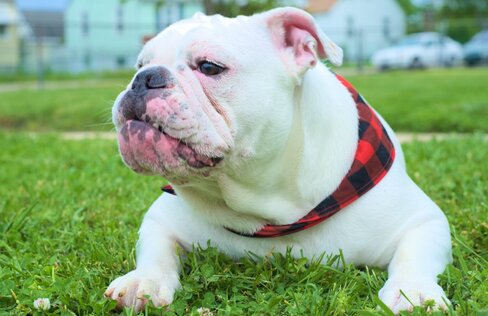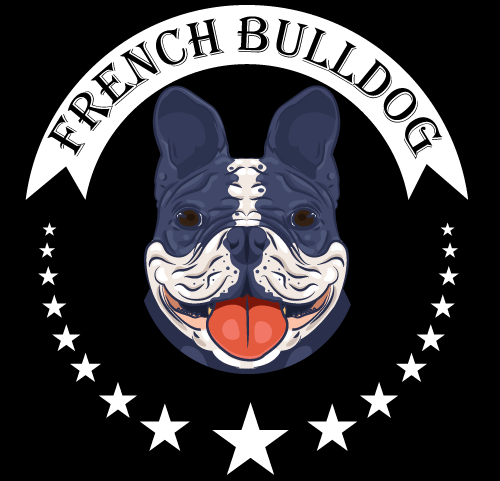Do French Bulldogs fart a lot? Ah, the age-old question that’s as intriguing as it is comical! On the off chance that you’ve at any point imparted your life to one of these delightful, level-confronted buddies, you most likely have a story or two about their, suppose, “fragrant” minutes. As an expert in the whimsical world of French Bulldog antics, I’m here to unravel the mystery of their gassy predisposition. So, fasten your seatbelts, folks, because we’re about to embark on a humorous and informative journey through the wonderful world of Frenchie flatulence.
And for those of you who love to dress up your Frenchies, be sure to check out our fantastic selection of Christmas sweaters for French Bulldogs – they’re the perfect attire for festive and funny holiday moments! Whether you want to capture that hilarious family photo or just keep your furry friend warm in style, these sweaters add a touch of charm to the holiday season. So, stay tuned for more on French Bulldog flatulence and find out how these delightful pups manage to combine their toots with holiday cheer!

Understanding Flatulence in French Bulldogs
Ah, the delightful world of French Bulldogs and their not-so-delightful flatulence – it’s a topic that often raises a few eyebrows and quite a few giggles among Frenchie enthusiasts. As a specialist in the field of canine ways of behaving and well-being, I’m here to reveal some insight into why these enchanting little canines can in some cases be a bit gassier than different varieties.
Priorities straight, it’s fundamental to perceive that farting, or basically, flatulating, is a totally regular physical process. All dogs, including the endearing French Bulldog, do it. However, some factors make Frenchies more prone to flatulence than other breeds. One of the primary reasons is their unique physiology, particularly their brachycephalic (short-snouted) faces, which can lead to increased air swallowing, a common precursor to flatulence.
Diet plays a pivotal role in the world of doggy gas. French Bulldogs are known for their sensitive tummies, and certain ingredients can trigger excessive gas production. Just like in humans, foods like beans, peas, dairy products, and excessive fiber can be culprits. Additionally, gobbling down their meals too quickly, which Frenchies are notorious for, can lead to gulped air and subsequent gas.
Another aspect to consider is food allergies and intolerances. Some French Bulldogs may have sensitivities to certain ingredients, leading to digestive issues and flatulence. It’s crucial to work with your veterinarian to identify any dietary culprits and ensure your Frenchie is on a diet that agrees with their tummy.
Common Causes of Excessive Gas in French Bulldogs
Ah, the charm and quirkiness of French Bulldogs, with their expressive faces and playful antics! But along with their endearing qualities, they’re also known for something else – the potential to produce an impressive amount of gas. As someone well-versed in the world of canine health, let’s dive into the common causes of excessive gas in our beloved Frenchies.
Dietary Choices: One of the most prevalent reasons for excessive gas in French Bulldogs can be attributed to what they eat. These sensitive pups often have trouble digesting certain ingredients. Foods like beans, peas, dairy products, and high-fiber items can trigger flatulence. Selecting a high-quality, easily digestible dog food that aligns with your Frenchie’s unique dietary needs can help keep the gas at bay.
Speedy Eaters: French Bulldogs are notorious for their enthusiastic, speedy eating habits. When they gobble down their meals too quickly, they tend to swallow extra air, which can lead to increased flatulence. Slowing down mealtime with the use of specialized feeding bowls or interactive feeders can be a game-changer.
Brachycephalic Anatomy: The adorable, flat faces of French Bulldogs, while endearing, can also contribute to their gassy predisposition. Their short noses can prompt expanded air admission, which, thus, can bring about additional incessant episodes of tooting. It’s a piece of their one-of-a-kind appeal, but at the same time, it’s something worth talking about to know about.
Food Sensitivities and Allergies: Very much like people, French Bulldogs can foster food awareness or sensitivities. These can appear as gastrointestinal issues, including gas. In the event that you suspect your Frenchie has explicit dietary responsive qualities, talk with your veterinarian to recognize possible guilty parties and investigate elective dietary choices.
Underlying Health Issues: Once in a while, extreme gas can be an indication of fundamental medical issues, like bad-tempered gut disorder (IBS) or bacterial excess. Normal check-ups with your veterinarian can help identify and address any wellbeing worries that may be adding to your Frenchie’s fart.
Dietary Factors Contributing to Farting in French Bulldogs
Ah, the wonderful world of French Bulldogs – these delightful, small companions have a big personality and a unique set of dietary needs. As an expert in canine nutrition and health, I’m here to unravel the mysteries behind why our lovable Frenchies can sometimes be a bit, well, gassy.
Ingredient Sensitivities: One of the primary factors contributing to farting in French Bulldogs is their sensitivity to certain dietary ingredients. These charming pups can have trouble digesting foods like beans, peas, lentils, and various high-fiber items. When these ingredients enter their system, it can lead to increased gas production. To mitigate this, consider choosing a high-quality dog food that avoids these troublesome ingredients.
Dairy Products: You might have noticed that French Bulldogs have a soft spot for dairy products. While that may be adorable, many of them lack the necessary enzymes to break down lactose effectively. As a result, dairy can cause digestive distress and, yes, increased flatulence. Limiting or eliminating dairy from your Frenchie’s diet can help keep their digestive system calm.
Fast Eating Habits: French Bulldogs are known for their enthusiasm, especially when it comes to mealtime. Their speedy eating habits can cause them to swallow air along with their food, a key precursor to farting. If you find that your Frenchie wolfs down meals, consider using specialized feeding bowls or interactive feeders to encourage slower, more controlled eating.
Choosing the Right Diet: Farting can also be influenced by the type and quality of food you provide for your Frenchie. Opt for a diet that is easily digestible and specifically formulated to meet the unique needs of French Bulldogs. An even, great canine food can go quite far in decreasing their gas creation.
Food Sensitivities and Responsive qualities: Very much like people, French Bulldogs can foster food sensitivities or awarenesses after some time. These can manifest as gastrointestinal issues, including gas. If your Frenchie seems to be experiencing digestive discomfort or excessive flatulence, it’s essential to consult with your veterinarian to identify potential dietary culprits and explore alternative options.
Breed Characteristics and Farting Frequency

Ah, the fascinating world of dog breeds! Each one brings its own unique charm, quirks, and, yes, even farting frequency. As an expert in canine behavior and health, I’m here to shed light on how breed characteristics can influence how often our furry friends let one rip, and in this case, let’s explore the delightful French Bulldog.
French Bulldogs and Their Unique Traits:
French Bulldogs, those adorable, bat-eared cuties, are renowned for their affectionate nature and compact size.In any case, what separates them from different varieties and how can it connect with flatulating? The following are a couple of qualities that assume a part:
Brachycephalic Anatomy: The most perceptible component of French Bulldogs is their brachycephalic (short-snouted) face. While it’s endearing and gives them their distinct appearance, this anatomy can lead to increased air intake during meals and even during regular breathing. More air in means, you guessed it, more air out – in the form of flatulence.
Sensitive Tummies: French Bulldogs have sensitive digestive systems. Their tummies are often intolerant of certain ingredients, like beans, peas, and dairy products, which can trigger excessive gas production. Being aware of these sensitivities can help manage their farting frequency.
Farting Frequency in French Bulldogs:
French Bulldogs, like any breed, can vary in how often they pass gas. However,any reasonable person would agree that they will generally have more regular episodes of fart contrasted with a few different varieties. This expanded flatulating recurrence is because of their exceptional mix of attributes – their brachycephalic life structures, fast dietary patterns, and dietary awarenesses all add to this enchanting characteristic.
While their farting may bring moments of humor and surprise, it’s essential to remember that excessive gas can sometimes signal underlying health issues. So, if you notice a sudden change in your Frenchie’s farting habits or if it’s accompanied by other unusual symptoms, consult with your veterinarian to rule out any potential problems.
Managing and Reducing Farting in French Bulldogs

Ah, the wonderful world of French Bulldogs and their, shall we say, unique digestive tendencies. As an expert in canine health and behavior, I’m here to guide you through the art of managing and reducing farting in our endearing Frenchies.
Understanding the Frenchie Factor:
Before we dive into solutions, it’s crucial to grasp why French Bulldogs are more prone to flatulence. Their distinctive breed traits play a significant role:
Brachycephalic Anatomy: The short snout, a hallmark of French Bulldogs, can lead to increased air swallowing during meals and everyday breathing. This extra air in the digestive system can result in more frequent flatulence.
Dietary Sensitivities: These sensitive pups often have trouble digesting certain foods, such as beans, peas, and dairy products. These ingredients can trigger gas production. Being mindful of their dietary sensitivities is a key step in addressing the issue.
Tips for Managing and Reducing Farting:
Choose the Right Diet: Opt for high-quality dog food explicitly planned to meet the interesting necessities of French Bulldogs. Keep away from fixings that are known to cause gas, like beans and peas. An even eating regimen can go far in decreasing tooting.
Regulate Eating Pace: French Bulldogs are notorious for their rapid eating habits, which can lead to swallowing air. Slow down their mealtime with specialized feeding bowls or interactive feeders. This can help reduce air intake and the subsequent gas.
Monitor Treats and Snacks: Be cautious with the type and amount of treats and snacks you provide. Some treats can contain ingredients that trigger flatulence. Opt for treats that are gentle on their digestive system.
Regular Exercise: Physical activity not only keeps your Frenchie in good shape but also aids digestion. A well-exercised dog is less likely to experience gastrointestinal discomfort and excess gas.
Consult Your Veterinarian: If you suspect underlying health issues or a change in farting frequency, don’t hesitate to consult your veterinarian. They can rule out any medical concerns and provide guidance on managing your Frenchie’s flatulence.
When to Consult a Veterinarian About Excessive Farting
Ah, the occasional toot from our furry friends can be humorous, but what happens when it becomes a frequent occurrence? As an expert in canine health, I’m here to guide you through when it’s time to consult a veterinarian about your dog’s excessive farting.
Understanding Normal vs. Excessive Farting:
First, let’s differentiate between normal and excessive flatulence. It’s perfectly normal for dogs, including French Bulldogs, to pass gas occasionally. However, if your pup’s flatulence becomes frequent, and severe, or is accompanied by other concerning symptoms, it’s time to consider a visit to the vet.
Key Indicators to Consult a Veterinarian:
Sudden Change in Farting Habits: In the event that your canine’s flatulating recurrence unexpectedly increments or the scent turns out to be prominently more hostile, it very well may be an indication of a fundamental issue.
Discomfort or Pain: Assuming your canine has all the earmarks of being in uneasiness or torment, or shows indications of stomach trouble alongside over-the-top gas, it’s a warning that something might be off-base.
Changes in Stool: Keep an eye on your dog’s stools. Diarrhea, constipation, or noticeable changes in stool consistency alongside excessive flatulence can indicate a problem.
Vomiting or Loss of Appetite: In the event that your canine encounters regurgitating or a deficiency of craving related to extreme gas, it’s an obvious indicator that a vet’s evaluation is required.
Other Unusual Symptoms: Focus on some other surprising ways of behaving, like laziness, swelling, or indications of uneasiness when contacted. These can be connected to gastrointestinal issues that add to exorbitant farts.
Consulting Your Veterinarian:
At the point when any of the above markers are available, counseling your veterinarian is ideal. They can carry out a careful actual assessment, run symptomatic tests, and examine your canine’s eating routine and way of life to decide the basic reason for the unreasonable flatulating.
Keep in mind, extreme fart can be connected with dietary issues, food-responsive qualities, gastrointestinal issues, or more serious ailments. Distinguishing the main driver is fundamental for your canine’s prosperity and solace.
Conclusion
Understanding the reasons behind your French Bulldog’s flatulence is essential to address the issue. By choosing an appropriate diet, regulating their eating pace, and monitoring their overall health, you can help reduce farting frequency and ensure a more comfortable and enjoyable life for your beloved Frenchie. If excessive flatulence is a concern, consulting with your veterinarian is always a wise step to rule out any underlying health problems and ensure the well-being of your furry companion.

